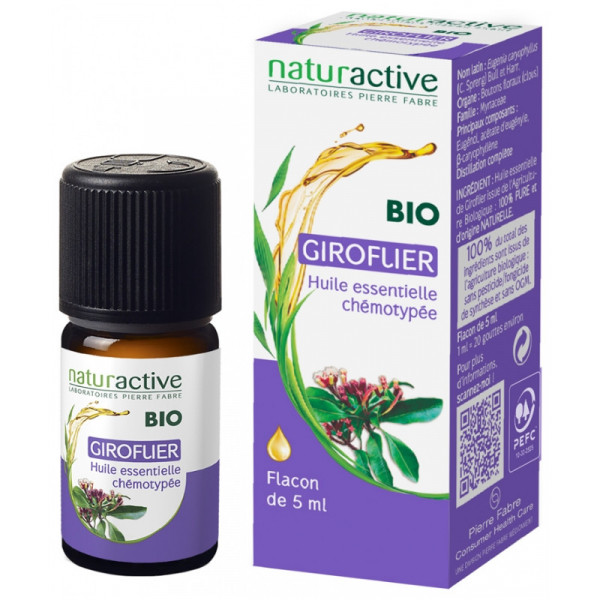Indications
Treats mouth (anti-septic EO), respiratory, urinary and benign digestive disorders.
Botany information
Eugenia caryophyllata Botanical family: Myrtaceae Producing organ: flower bud or “clove” Chemotype: eugenol, eugenyl acetate, beta-caryophyllene Origin: Madagascar
Botany specifications
This precious spice was for a long time the monopoly of Dutch merchants. The “clove” contains an exceptional content of essential oil (18-20%), notably in eugenol. These are the large dried flower buds of the large evergreen tree native to the Maluku Islands.
Use
Diffusion -, Bath -, Massage +, Orally +
Ambient setting: on its own or in a mixture by regular low heat evaporation.
Atmospheric diffusion: to be used with precaution after advice from a health professional, no prolonged use.
Dermal application: diluting 5% maximum in vegetable oil.
Orally: diluted with some vegetable oil and combined with lemon essential oil. Only after medical consent. 1 drop per day for 5-7 days.
Inhalation: not recommended
Practical advice
Mouth treatment : In the case of dental pain and mouth ulcers: dilute 8 drops of clove EO in 5ml of cooking oil (olive, sunflower...); pour 1 drop of the mix onto a cotton bud and apply onto the painful area 6-8 times per day if necessary.
Urinary comfort : The clove essential oil is an additive against urinary discomfort. Dilute to 5% in macadamia vegetable oil and massage onto the stomach. In case symptoms persist, consult your doctor.
Gingivitis : Gum inflammation can be treated by diluting 5% of clove EO in cooking oil; apply 1-2 times per day with your finger or cotton bud. Not to be used continually and consult your dentist to find the source of the problem.
Contraindication
Do not use this oil for more than 1 week. Not recommended for pregnant or breast feeding women or children under 7 years of age. Do not use it in its pure state on skin!




